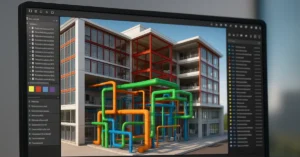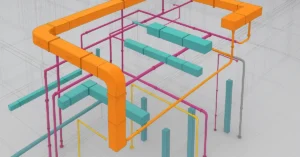In the dynamic and ever-evolving field of architecture, professionals often encounter various legal and ethical challenges. From navigating complex building codes and regulations to addressing ethical dilemmas, architects must be well-prepared to tackle these issues with finesse. This comprehensive guide aims to shed light on the legal and ethical challenges in the architecture industry and provide valuable insights to help architects navigate them effectively.

Understanding Legal Obligations
- Compliance with Building Codes:
Architects have a legal obligation to ensure that their designs comply with local, state, and national building codes and regulations. Staying up-to-date with the latest codes and understanding their intricacies is crucial to avoid potential legal issues down the line. - Contractual Agreements:
Architects must carefully review and negotiate contracts with clients, contractors, and consultants. Clear and comprehensive contracts help define roles, responsibilities, and protect all parties involved. - Intellectual Property Rights:
Architects must safeguard their intellectual property rights by understanding copyright laws and ensuring proper protection of their designs. This includes obtaining necessary permissions and licenses for the use of their work.
Navigating Ethical Dilemmas
- Client Confidentiality:
Architects must uphold strict client confidentiality, maintaining the privacy of sensitive information shared during the course of their professional engagements. Respecting client confidentiality builds trust and fosters strong professional relationships. - Conflict of Interest:
Architects must avoid conflicts of interest that could compromise their professional judgment and integrity. Transparency and disclosure of any potential conflicts are essential for maintaining ethical standards. - Sustainable Design and Environmental Responsibility:
Architects have an ethical responsibility to incorporate sustainable design principles and promote environmental responsibility in their projects. Prioritizing energy efficiency, minimizing waste, and using eco-friendly materials contribute to a greener future.
Best Practices for Addressing Challenges
- Continuous Professional Development:
Architects should engage in ongoing education and training to stay abreast of legal and ethical developments in the industry. Attending workshops, seminars, and industry conferences helps architects enhance their knowledge and skills. - Collaboration and Consultation:
Seeking legal counsel and consulting with experts in specialized areas, such as construction law or professional ethics, can provide valuable guidance when facing complex legal or ethical challenges. - Ethical Decision-Making Framework:
Architects can adopt an ethical decision-making framework to analyze and resolve ethical dilemmas. Such frameworks often involve evaluating the potential impact on stakeholders, considering ethical principles, and seeking diverse perspectives. - Professional Associations and Codes of Conduct:
Architects should actively participate in professional associations and adhere to their codes of conduct. These associations provide support, resources, and guidelines for ethical behavior within the architecture industry.
Conclusion
In conclusion, architects who navigate the legal and ethical challenges of the industry not only safeguard their professional reputation but also contribute to the overall integrity and trustworthiness of the field. By prioritizing legal compliance, architects ensure the safety and well-being of the public while adhering to ethical principles allows them to make decisions that align with the greater good.
It is essential for architects to stay informed about changes in building codes, regulations, and industry standards to avoid legal pitfalls. By investing in continuous professional development and seeking legal counsel when necessary, architects can confidently navigate complex legal landscapes.
In conclusion, by understanding and navigating legal obligations, addressing ethical dilemmas, and adopting best practices, architects can successfully overcome the legal and ethical challenges inherent in the architecture industry. By doing so, they not only protect their professional reputation but also contribute to the betterment of the built environment and society as a whole.
For more SketchUp tutorials you can check out https://www.sketchupguru.com/blog/
You can also check more tutorial videos for sketchup on our YouTube Channel,
https://www.youtube.com/c/SketchupGuru
To know about the Top Online 3D Rendering Courses for 2022 click,










